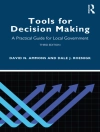What China’s infamous railway initiative can teach us about global dominance.
In 2013, Chinese President Xi Jinping unveiled what would come to be known as the Belt and Road Initiative (BRI)—a global development strategy involving infrastructure projects and associated financing throughout the world, including Asia, Africa, the Middle East, Europe, and the Americas. While the Chinese government has framed the plan as one promoting transnational connectivity, critics and security experts see it as part of a larger strategy to achieve global dominance.
Rivers of Iron examines one aspect of President Xi Jinping’s “New Era”: China’s effort to create an intercountry railway system connecting China and its seven Southeast Asian neighbors (Cambodia, Laos, Malaysia, Myanmar, Singapore, Thailand, and Vietnam). This book illuminates the political strengths and weaknesses of the plan, as well as the capacity of the impacted countries to resist, shape, and even take advantage of China’s wide-reaching actions. Using frameworks from the fields of international relations and comparative politics, the authors of
Rivers of Iron seek to explain how domestic politics in these eight Asian nations shaped their varying external responses and behaviors. How does China wield power using infrastructure? Do smaller states have agency? How should we understand the role of infrastructure in broader development? Does industrial policy work? And crucially, how should competing global powers respond?
Table of Content
List of Illustrations
Preface: Setting the Stage
Acknowledgments
1. Chinese Power Is as Chinese Power Does
2. The Grand Vision
3. China’s Debates
4. Diverse Southeast Asian Responses
5. The Negotiating Tables: China and Southeast Asia
6. Project Implementation: “The Devil Is in the Details”
7. Geopolitics and Geoeconomics
8. Implications for China, Asia, and the World
Notes
Index
About the author
David M. Lampton is Professor Emeritus at Johns Hopkins University’s School of Advanced International Studies (SAIS) and Research Scholar and Oksenberg-Rohlen Fellow at Stanford University’s Asia-Pacific Research Center. He has served as president of the National Committee on United States–China Relations and was the inaugural winner of the Scalapino Prize in 2010. He is the author of Following the Leader: Ruling China, from Deng Xiaoping to Xi Jinping. Selina Ho is Assistant Professor and Chair (Master in International Affairs Program) at the Lee Kuan Yew School of Public Policy, National University of Singapore. She is also nonresident Senior Fellow at the Singapore Institute of International Affairs. She is the author of Thirsty Cities: Social Contracts and Public Goods Provision in China and India. Cheng-Chwee Kuik is Associate Professor and Head of the Centre for Asian Studies, the Institute of Malaysian and International Studies at the National University of Malaysia, and a nonresident Fellow at the Foreign Policy Institute, SAIS Johns Hopkins. He received the 2009 Michael Leifer Memorial Prize, presented by the Institute of Southeast Asian Studies, for his essay “The Essence of Hedging.”












